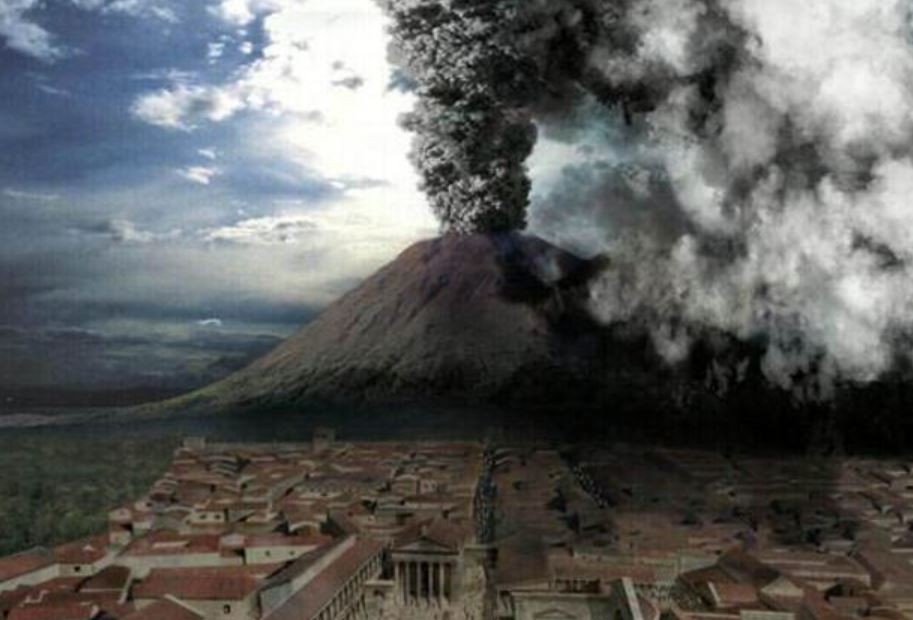
To see the previous installments, click on the following links: #1, #2 , #3, #4, #5, #6, #7, #8, #9, #10, #11, #12, #13, #14, #15, #16, #17, #18, #19, #20, #21, #22, #23, #24, #25, #26, #27, #28
And that fateful day came. It was 24 August 79, when the once faithful and stable earth became treacherous, showing the true power of Vesuvius. At dawn, warning signs were already in the air: columns of smoke rose ominously, and a fine rain of ashes began to fall softly, as if the mountain were breathing out its pent-up anger. As early afternoon approached, the volcano unleashed its full fury. Its roar, like the cry of an angry god, echoed throughout the city, and a dense, dark column rose into the sky, invading Pompeii with ash and pumice, blinding the light and covering everything we had ever known with its mantle.
Despair gripped everyone, and the streets filled with cries and pleas as Pompeians tried to escape the maelstrom. The air, thick and oppressive, seemed to be breathless, and on every street corner there was a hellish confusion, where no one knew whether they were running from death or running towards it.
It was then that I saw Marcus's son, still so young, perish under the weight of a collapsed ledge, crushed beyond repair by the desolation of this city which, in life, had pursued him with implacable judgement. Ironies of fate: he had managed to escape the justice of men, but not the ultimate justice that seemed to await him in the ruins of Pompeii. His death, so fortuitous and sudden, was almost an act of that same city that had survived his ordeal, but which, in its final fall, was collecting an outstanding debt. The tragedy was inexplicable, and in that terrible instant, it seemed that not only the city, but fate itself had condemned him.
Aemilia and I, seeing that there was no way out, sought refuge in the cellar of our bakery. We cuddled there, under the wooden beams, surrounded by the rising heat and the walls that vibrated with each new explosion. The rumbling of the pyroclastic flows, descending at unstoppable speed from the hillside, felt closer and closer, and a thick, suffocating air began to seep into the cellar.
At that last moment, time seemed to stand still, and there was no more fear, only the sincere love that, in the midst of ruin, united us as never before. I took Aemilia's face in my hands, looking into her eyes, and I felt that we still had one last moment of peace in this devastation.
With a trembling voice, I whispered the words that were waiting in my chest: “I will love you forever.” Caught between destruction and love, we thus awaited, together, the arrival of our destiny.
To be continued
Note: To see the recreation of this day in Pompeii and the eruption of Vesuvius, you can watch these videos:
- A Day in Pompeii - Full-length animation. Author: ZERO ONE (www.zeroonestudio.com): https://www.youtube.com/watch?v=dY_3ggKg0Bc&t=364s
- Vesuvius 79 AD . Author: IA-Hailuo IA Minimax short film: https://www.youtube.com/watch?v=tDlmMHLu9d4
Header Image:
Eruption of Vesuvius. Source: publica.prensa-latina.cu
My heart is actually racing! Very descriptive and gripping.
Thank you very much, Uly ( @CocoPop ). There is only one chapter left and the end of the series has the development of a comment that you made to me almost without realizing it.
Oh my God! Now I'm on pins and needles. Can't wait to read it!
So the eruption finally happened. I’m very curious to see what will happen to the two of them. And thank you very much for sharing the link!